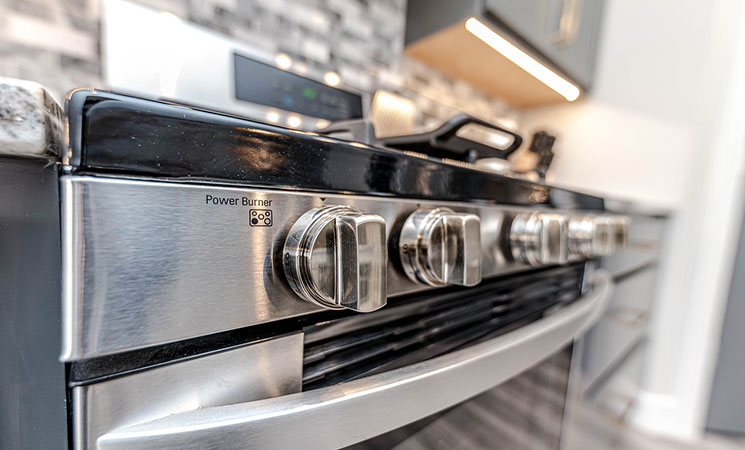The appliance distribution industry plays a crucial role in connecting manufacturers with consumers. It offers lucrative opportunities but also presents significant challenges. Before diving into this field, it’s essential to carefully consider various factors to ensure a successful venture.
In this article, we’ll explore the key elements to consider before entering the appliance distribution business, from understanding market dynamics to establishing a solid business plan, building a robust supply chain, developing effective marketing strategies, and managing financial considerations.
KEY TAKEAWAYS
- Analyze market trends, competitors, and consumer preferences before entering appliance distribution.
- Develop a comprehensive business plan outlining goals, strategies, and legal compliance.
- Establish reliable supply chains, quality control processes, and efficient logistics.
- Implement targeted marketing, branding, and sales strategies to reach your audience effectively.
Understanding the Market Dynamics
Keeping a pulse on market trends and consumer preferences is vital in the appliance distribution industry. Are energy-efficient models in high demand? What about smart home appliances? Analyzing these trends can help you make informed decisions.
It’s also important to identify the major players and assess the competitive landscape in the consumer appliances industry before you dive in. Are there well-established distributors dominating the market, or is there room for new entrants?
Regional and demographic factors, such as population growth and household income levels, can also influence demand. As you thoroughly look into the market dynamics, you can position your business effectively and tap into the right opportunities.
Establishing a Solid Business Plan
A well-defined business plan is the foundation of any successful venture, and appliance distribution is no exception. It should include an executive summary, market analysis, operations plan, financial projections, and marketing strategies.
Setting clear goals and objectives is crucial. What types of appliances will you focus on? Will you target residential or commercial customers? Identifying your unique value proposition and competitive advantage can help you stand out in the market.
Don’t overlook the legal and regulatory requirements, such as licenses, permits, and insurance. Failure to comply can lead to hefty fines and even shut down your operations. A solid business plan will help you navigate these complexities and stay on track.
Building a Robust Supply Chain
A reliable and efficient supply chain is the backbone of any successful appliance distribution business. Start by sourcing and selecting reputable appliance manufacturers or suppliers that align with your quality standards and pricing requirements.
Consider the pros and cons of importing versus domestic sourcing. Importing may offer cost advantages, but domestic suppliers can provide faster delivery times and easier communication.
Quality control and product testing are crucial to ensure customer satisfaction and avoid potential liabilities. Develop processes for inventory management, warehousing, and logistics to streamline operations and minimize delays or stockouts.
Operational Efficiency
Running an appliance distribution biz isn’t just about the products. You gotta have smooth operations too. Think of it like a well-oiled machine—everything needs to work together seamlessly. First up, streamline your processes.
Map out each step, from ordering to delivery, and look for ways to cut out any unnecessary hassle. Maybe you can automate certain tasks or implement new software to boost efficiency. Next, focus on your team. Make sure they’re trained and motivated to give top-notch service. A few bad apples can mess things up, so foster a positive, hard-working culture.
And don’t forget about quality control! Double-check that appliances meet standards before they go out. Nobody wants a fridge that conks out after a week. Paying close attention to details like this can save you major headaches down the road.
Marketing and Sales Strategies
Developing a comprehensive marketing plan is essential for reaching your target audience and driving sales. Evaluate various marketing channels, such as online platforms, social media, trade shows, and traditional advertising methods, to determine the most effective strategies for your business.
Branding and customer loyalty programs can help you build a strong reputation and foster long-term relationships with customers. Don’t overlook the importance of a well-trained and motivated sales team to effectively promote and sell your products.
Explore potential partnerships or collaborations with complementary businesses, such as home improvement stores or contractors, to expand your reach and tap into new customer segments. Pricing strategies should balance profitability with market competitiveness.
Financial Considerations
Adequate capital and financial planning are essential for any new business venture. Determine your startup costs, including inventory, equipment, and infrastructure, and secure sufficient funding from personal savings, loans, or investors.
Effective cash flow management and financial forecasting can help you navigate the ebbs and flows of the business and make informed decisions. Develop contingency plans to mitigate potential risks, such as economic downturns, supply chain disruptions, or changes in consumer demand.
Keep an eye on economic factors like inflation and exchange rates, as they can impact your cost of goods and profitability. Regularly review and adjust your financial strategies to ensure the long-term sustainability of your appliance distribution business.
Closing Thoughts
Entering the appliance distribution industry requires careful consideration of various factors. As you take into account all these, you can increase your chances of success in this competitive field. With thorough research, planning, and execution, the rewards of a thriving appliance distribution business can be substantial.













